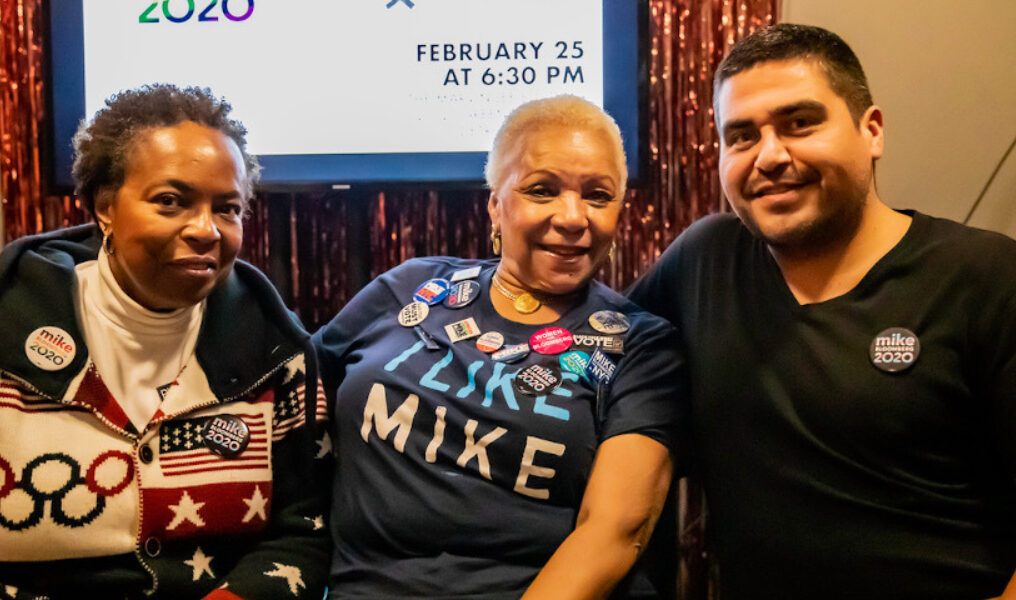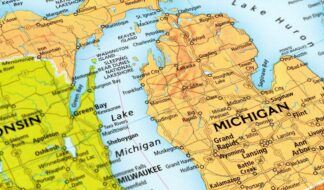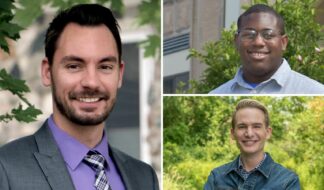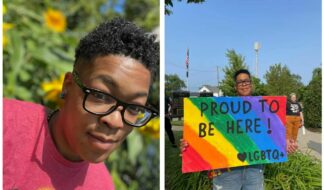For anyone paying attention to the Democratic candidates in the 2020 presidential race, polls have shown repeatedly that at the start of primary season voters have remained vastly undecided about their favored pick. In a PR Newswire poll of just over 1,000 voters released on Feb. 25, 63 percent are either undecided or unexcited about their choice. However, at this stage, it's clear that one candidate has floated out above the rest in visibility: Mike Bloomberg. The New York Times reported that at a price tag of roughly $410 million, the New York billionaire has purchased "omnipresence," already outspending both Hillary Clinton and President Trump's entire 2016 budget for television ads alone.
As BTL goes to press ahead of Super Tuesday, whether this massive outreach will pay off is unclear. In particular because of Bloomberg's shaky support among voters of color who make up nearly a third of the electorate. This stems from his support of New York's stop-and-frisk police tactics, which disproportionately targeted black and Latino men, while he served as mayor and controversial statements he made about redlining. Among LGBTQ voters, Bloomberg's past statements about transgender people as "he, she or it," "some guy in a dress" and alleged use of the term "horse-faced lesbians" has also tarnished his image.
Last week, Bloomberg sent two surrogates to LGBT Detroit as a part of his campaign's Listening Tour in a bid to learn more about issues vital to Michigan LGBTQ voters of color. National Director for LGBTQ+ Outreach Joseph Arroyo was in attendance.
"This [meeting] is about listening and hearing from people directly about what we can do better and how we can do this work better," Arroyo said. "So, we're here to answer questions, but we're really here to listen to what's really going on and how can we make sure our campaign is going to work for everyone."
"Not an endorsement."
Jerron Totten is LGBT Detroit's social outreach coordinator and legislative outreach specialist. He said that this visit was not an endorsement of Bloomberg by LGBT Detroit, rather it served as a community forum.
"While this is not an endorsement by LGBT Detroit, the opportunity has been accepted by the Mike Bloomberg campaign, as any campaign would have the opportunity to hear the thoughts, needs, concerns and questions of this community," Totten said. "We as an organization provide a safe gathering space where members of the LGBT+ community can interact without fear, persecution or bigotry."
Besides Arroyo, the evening's speakers included wives Gail Marquis and Audrey Smaltz. Marquis is a former Olympic silver medalist and member of Mike 2020 National LGBTQ+ Leadership Council, while Smaltz is part of the Mike 2020 National Women's Leadership Council. Marquis began the evening calling Bloomberg "a genuine man" and told the crowd of her and Smaltz's longtime friendship with him. When the floor opened for questions, a woman in the crowd brought up stop-and-frisk first.
"… What I want to know is: when did this man have a change of heart and is he going to use his money to rehabilitate a lot of these young men from stop-and-frisk and to get them out of prison and be able to get them back into society?"
Smaltz answered first, reminding the audience that the policy began in 1964 and that in an effort to keep the city safe, Bloomberg kept the policy in place and "didn't realize how bad it was" at first.
"As far as the men, black and brown, who are incarcerated. He's been trying to get them on stable footing. He gives a lot to education all around. He has a men's initiative, which he had started, I'm not sure if it was while he was mayor or while he was coming out of it, specifically for black and brown men, young men, in New York city, in the tri-state area to get them educated, to get them jobs, to get them back on the right path," Marquis said.
Marquis added that she herself was stopped-and-frisked and trusts in Bloomberg's apology for the policy.
"You can go ahead and be the judge, but we have somebody up in the White House right now who doesn't apologize at all. He doesn't apologize repeatedly," she said.
"We can take it back."
Still, not everyone in the audience was able to take Bloomberg at his word. A man in the crowd (Troy Kennnedy) self-described himself as "not a Bloomberg fan." He said that he too was stopped and frisked and called Bloomberg's apology disingenuous.
"He has the privilege to look with disdain at 15-25 year old black and brown men. That can't be forgiven," he said. "… Maya Angelou said if somebody shows you who they are you believe them. The contempt that Bloomberg spoke about young black and brown men 15-25 and it wasn't once, it wasn't twice, it wasn't three times; there's no forgiving that."
Each speaker said they empathized with the audience member's concern. Then Arroyo said that qualities of Bloomberg's campaign like this listening tour is why he joined.
"What you're talking about is important, and we need to know. Because I think the place I see this campaign is that even if Bloomberg is not president he's still a billionaire and he's still going to have immense influence and power in this country," Arroyo said. "And so, everything I can do to get our campaign on the right track, I need to hear from people."
The panelists then went on the cite Bloomberg's support of various campaigns against conservative politicians like U.S. Sens. Lindsey Graham and Mitch McConnell. Then both Marquis and Smaltz said that they would "take back" the audience members concerns.
Marquis also made note of the fact that Bloomberg "owned his white privilege" when he talked of his ability to receive a loan for his business after being laid off at 39. She then went on to cite the Greenwood Initiative as one of Bloomberg's platforms that is aimed at creating economic justice for black Americans. Arroyo said it's a way to "level the playing field" for black Americans.
"That's acknowledging that black people haven't been able to build generational wealth, and how do you have a conversation about economic justice without talking about race? And that's one of the reasons I work for him, because he's actually acknowledging that it's not a level playing field," he said.
The plan is to aid the creation of 100,000 black-owned small businesses, create 1 million new black homeowners, to invest $70 billion into 100 of the most disadvantaged neighborhoods and more.
Other topics the panelists said they would "take back" to Bloomberg directly were related to the study of HIV infection in transgender men, collecting data to prevent violence against transgender women, the increased rates of tobacco use among LGBTQ people and crushing levels of student loan debt — particularly at historically black colleges and universities.
The subject of gun violence was broached, too. Arroyo, who works with Everytown — a Bloomberg-started organization that is dedicated to stopping gun violence across the U.S. — answered. He cited Bloomberg's staunch anti-gun violence platform that aims to increase background checks, ban assault weapons and "hold the gun industry accountable."
"When I think about all the different things I've been a part of on his campaign I've seen it happen to the point where I'm at the table. Not everyone's perfect, but the thing I love about this campaign is that I'm not the only one at the table, there are a lot of us at the table that are making sure we get things right," he said.
To find out more information about Bloomberg's presidential platforms visit mikebloomberg.com.










